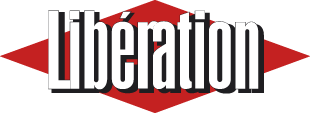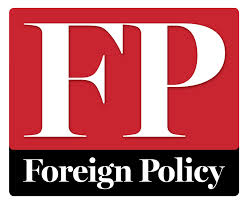

L'empire de la classe du milieu
Apparue en même temps que le miracle économique, la population des couches moyennes incarne un pays en pleine mutation : confort matériel, meilleure éducation, ouverture sur le monde... mais aussi rupture avec les valeurs traditionnelles.


Sécheresse en Corée du Nord : intox ou catastrophe réelle ?
Le régime de Pyongyang réclame de l'aide, mais les observateurs internationaux s'interrogent sur l'ampleur du phénomène.

Chine/Corée du Sud/Japon: un passé qui ne passe pas
Cet été marque le 70ème anniversaire de la fin de la deuxième guerre mondiale avec le largage des bombes atomiques sur Hiroshima et Nagasaki en Août 1945. Alors que les relations entre la Chine et la Corée du Sud sont au beau fixe, Pékin et Séoul entretiennent des rapports tendus avec Tokyo.

Le changement politique tente peu la classe moyenne chinoise
Michel de Grandi présente les conclusions de l'étude d'Alice Ekman sur les classes moyennes chinoises.


Why Putin Is Squaring Off With Tokyo Over Some Pacific Rocks
Disputed rocks and Beijing’s bad behavior in the South China Sea dominate the headlines these days. But there’s another showdown over disputed islands in the Pacific that is increasingly casting a shadow over Asia-Pacific security: a bitter fight between Japan and Russia over the Kurils...
(Dis)integrating Asia? - Interview with Wook Chae
Wook Chae is a professor at the Graduate School of Pan-Pacific International Studies of Kyung Hee University and the former President (2008-2013) of the Korea Institute for International Economic Policy (KIEP).
What is China's vision in shaping cooperative frameworks? Interview with Richard W.X. Hu
Richard W.X. Hu, Professor in the Department of Politics and Public Administration at the University of Hong Kong, analyzed China's role in the regional economic integration process.
- What is China’s vision in shaping cooperative frameworks?
- What is China’s rationale behind setting up the Asian Infrastructure Investment Bank?
- What is your prognosis for the future of a China-Japan-Korea cooperative framework?
Click here to read the program of the conference.
(Dis)integrating Asia? - Interview with Euan Graham
Euan Graham, Senior Fellow in the Maritime Security Programme at Rajaratnam School of International Studies (RSIS), explained Australia's position vis-à-vis regional economic integration in Asia.
(Dis)integrating Asia? - Interview with GVC Naidu
GVC Naidu is a Professor of International Relations at the Jawaharlal Nehru University in New Delhi.
Japan’s Coast Guard and Maritime Self-Defense Force: Cooperation among Siblings
Coping with “gray zone” situations has in recent years become the core security challenge for Japan. Since September 2012, Beijing has been challenging Japan’s sovereign control of the Senkaku Islands by regularly sending law-enforcement vessels into Japanese territorial waters and contiguous zones.
China’s Military Deployments in the Gulf of Aden: Anti-Piracy and Beyond
The reason for the deployment of a People’s Liberation Army Navy (PLAN) “anti-piracy task force” in the Gulf of Aden (GoA), a key area for the Chinese economy, was obvious in 2008. However, as the pirate activity has faded away since 2012, the objectives of the PLAN in GoA became unclear.
Japan's New Dual-Use Space Policy: The Long Road to the 21st Century
Japan’s latest space policy is designed to support a more proactive US-Japan alliance role in containing China, and robustly defend Japan against North Korean ballistic missile threats.
Challenge of Making Smart Cities in India
The Indian government has launched the Smart Cities Mission in June 2015 with the aim of providing a better quality of life to the citizens in 100 cities of the country. This paper describes the main features of the Mission and attempts to explain the challenges in the way forward.
Russia’s Asia Strategy: Bolstering the Eagle’s Eastern Wing
Among Russia’s strategic priorities, Asia traditionally played a secondary role compared to the West. In the mid-1990s, then Foreign Minister Yevgeny Primakov initiated a rapprochement with China and India. Then, in 2014, deteriorating relations between Russia and the West prompted Moscow to begin its “great pivot to the East”.

China’s rise: the view from South Korea
Monitoring China-South Korea relations is key for the EU, as both countries have been designated strategic partners. Moreover, the Union has important economic ties to both, and signed a free trade agreement (FTA) with the Republic of Korea (ROK) in 2011.
Najib Razak’s Malaysia: A solid economy on a foundation of political tension
Najib Razak began his term as Prime Minister of Malaysia in 2009 amidst a severe global economic crisis, concern over spiraling public debt and fears the country would fall into the ominous “middle income trap”.
Tokyo face aux désastres naturels : leçons, enjeux et défis
While Tokyo prepares to welcome the 2020 Summer Olympic Games, the likelihood that a massive earthquake will occur in the capital city within the next thirty years is estimated at 70 %. This fact alone reflects the challenges that Japan must face in managing the risk of natural disasters.
Determinants of Japan’s ODA Allocation in Africa
The debate on emerging donors raises a question whether traditional donors really follow their own ODA (Official Development Assistance) policies or not. This paper addresses the question by investigating Japan’s adherence to its own ODA policies.
Japan's Challenges in Public Diplomacy, An American Vision
Japan’s public diplomacy (PD) profile rests almost exclusively on the promotion of its cultural soft power. Today, in the complex geopolitical setting of Asia, in which national rivalries are reviving competing wartime history narratives and territorial disputes, this approach is no longer sufficient to advance Japan’s own national interests and gain favorable opinion abroad. Under the Prime Minister Abe, Japan has begun to transform and upgrade its public diplomacy. However, the country is still facing a number of challenges.
Support independent French research
Ifri, a foundation recognized as being of public utility, relies largely on private donors – companies and individuals – to guarantee its sustainability and intellectual independence. Through their funding, donors help maintain the Institute's position among the world's leading think tanks. By benefiting from an internationally recognized network and expertise, donors refine their understanding of geopolitical risk and its consequences on global politics and the economy. In 2024, Ifri will support more than 70 French and foreign companies and organizations.
























